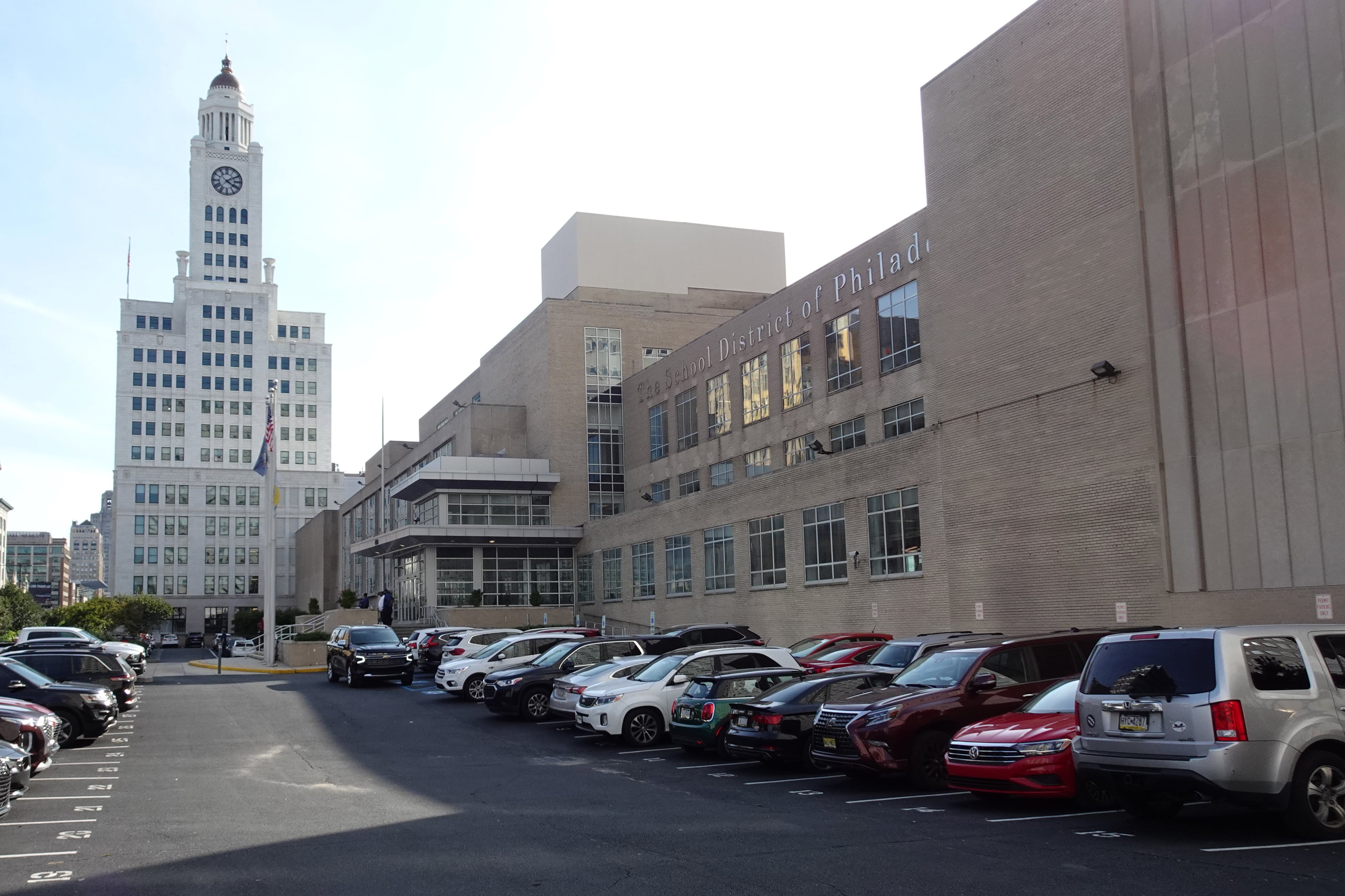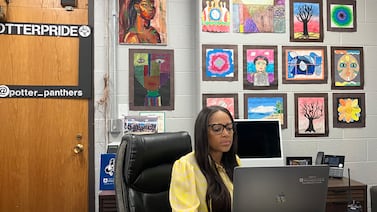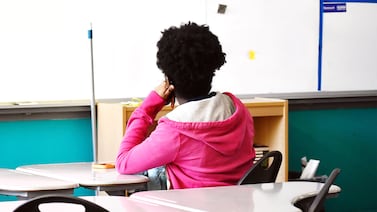Sign up for Chalkbeat Philadelphia’s free newsletter to keep up with the city’s public school system.
The Philadelphia Board of Education voted Thursday to renew several charter schools and approved nearly $76 million for tutoring, a new science curriculum, and year-round school at its first meeting of the new school year.
The board also voted to approve a controversial new memorandum of understanding between Drexel University and the district regarding the campus partnership between Drexel, Powel Elementary School, and Science Leadership Academy Middle School.
Superintendent Tony Watlington gave a presentation about his priorities for the school year and shared some updated data about student participation in summer programs this year: More than 17,000 students took part.
This iteration of the board is still relatively new, and with the first day of school just a few days away, residents are watching closely to see where board members stand on contentious topics like whether to expand the charter school sector. Though the board hasn’t approved a new charter school since 2018, it has added more than 2,000 charter seats over the same period of time.
In one recent but rare about-face, board members voted in January to reverse their own decision last year not to renew Southwest Leadership Academy’s charter.
On Thursday, the board voted to renew the charters of KIPP West Philadelphia Charter School, Philadelphia Hebrew Public Charter School, and Global Leadership Academy for five years. However, the board has repeatedly denied GLA’s applications to open a new school.
Members also voted to approve a location change for Maritime Academy Charter School due to potential health and safety hazards.
All of the proposed charter renewals passed with six members in favor and one member — Whitney Jones — abstaining “for personal reasons.” (Jones used to work for the KIPP charter school network.) The Maritime location change passed with all seven present members voting in favor.
Tutoring, science curriculum, year-round school get funding
Board members also voted to approve more than $76 million for high-dosage tutoring, Mayor Cherelle Parker’s year-round school initiative, a new science curriculum that’s part of the district’s broader curriculum overhaul, sports equipment, arts education materials, and more.
Several public speakers on Thursday raised concerns about the way the district is navigating conversations about the Israel-Hamas war in classrooms. Both pro-Israel and pro-Palestinian speakers addressed the board.
Keziah Ridgeway, a public school educator who has been at the forefront of pro-Palestinian advocacy in the school district, spoke out against the district’s $1 million contract with the Boston-based nonprofit Facing History and Ourselves that the board approved Thursday.
Watlington previously cited the deal with the group as a way to support school-level conversations about difficult topics like discrimination, racism, and the Israel-Hamas war. But Ridgeway said when the group visited her school, it delivered what she called a “lackluster workshop” that did not properly address students’ concerns and questions.
Meanwhile, former board member Mallory Fix-Lopez testified on Thursday that information about the year-round school initiative has not been adequately communicated to parents like her who have kids starting at one of the pilot schools next week.
“I would’ve thought by now, at the very least, that we’d know the working definition of ‘all-year school.’” Fix-Lopez said.
The board also voted to approve the memorandum with Drexel over the protests of several parents and community members from the two schools. Public speakers told board members they did not have sufficient time to review the proposal. They said the partnership was “full of promises that have not been met” and they are seeking a sustainable funding plan from Drexel in addition to space for more community input.
The spending items approved by the board Thursday include:
- A $6.4 million contract with Saga Innovations and Littera Education, for high-impact tutoring. Less than 1% of students participated in the district’s post-pandemic tutoring programs in 2023. According to new but limited data from the district, it piloted new tutoring programs in two schools from April to June of this year, and 126 students participated. Of those students, 65% demonstrated increases in their math scores.
- A $31.7 million contract with Amplify Education, Kendall Hunt Publishing Company, and SAVVAS for new K-12 science instructional resources.
- A $13.8 million agreement with the city to fund out-of-school time programming for Parker’s year-round school initiative. In a section of the board’s meeting documents, the district said it will be evaluating the pilot program this year and have laid out metrics — like attendance and number of students participating — to help them determine the success of the program.
- A combined $4.7 million for athletics costs including sports equipment, apparel, and referee fees.
The district also provided an update on its federal COVID relief spending in the board documents for Thursday’s meeting. The district received $1.1 billion in the third and final round of Elementary and Secondary School Emergency Relief (ESSER) through the American Rescue Plan Act. All of that money has been “fully obligated” but not all of it has necessarily been spent, the district said. The deadline for using that aid is Sept. 30.
Altogether, the district has received about $1.8 billion in ESSER funds.
Carly Sitrin is the bureau chief for Chalkbeat Philadelphia. Contact Carly at csitrin@chalkbeat.org.






